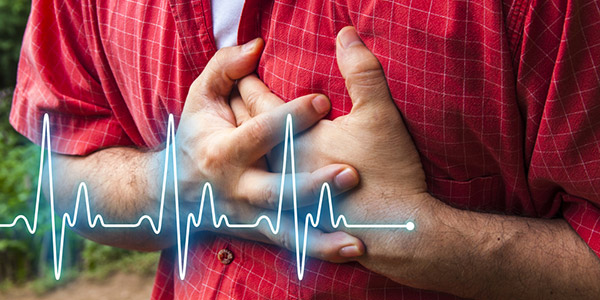People often use the terms ‘cardiac arrest’ and ‘heart attack’ interchangeably, but these medical emergencies are not the same thing. Do you know the difference? If so, it could save someone’s life – maybe even yours – one day.
What is cardiac arrest?
Cardiac arrest is an ‘electrical’ failure of the heart. This malfunction causes the heart to beat irregularly (arrhythmia), which can stop it from pumping blood around the body.
When blood stops circulating, the brain, lungs and other vital organs are starved of oxygen. Seconds later, the person loses consciousness and stops breathing. Without emergency treatment, they can die within minutes.
What to do:
Cardiac arrests usually occur suddenly, so there are no warning signs. However, if the person is treated within a few minutes of the arrest, then it may be reversed.
So, if you suspect someone is having a cardiac arrest, you will need to act immediately. Call for an ambulance on 000 from any phone, or 112 from your mobile if you have poor or no reception. Then check the person: if they are not responsive and have no pulse, begin CPR while you wait for medical help to arrive. Uninterrupted CPR increases the person’s chance of surviving.
What is a heart attack?
A heart attack happens when blood flow to your heart is blocked. This means less oxygen-rich blood reaches your heart. Oxygen is life, so with less of it, your heart muscle begins to die, which can cause permanent damage to the heart. This can lead to death.
During a heart attack, the heart usually doesn’t stop beating – unless it goes into cardiac arrest (see below).
Typical heart attack symptoms can include:
- pain/discomfort in the chest or other upper areas of the body, such as your jaw, back, neck, shoulders or arms
- shortness of breath
- cold sweats
- nausea/vomiting
- dizziness.
However, it’s important to know that heart attack symptoms can vary from person to person. For example, while the majority experience some form of pain, a small percentage of people don’t. Also, symptoms tend to start slowly and persist for hours, but for some people, can be immediate and intense. For these reasons, identifying whether you or someone else is having a heart attack can be difficult.
What to do:
Even if you’re unsure if you or someone else is having a heart attack, call an ambulance immediately. Sit or lie down while waiting for help to arrive; don’t drive to the hospital yourself.
Is there a link between the two?
Heart attacks and cardiac arrests are both usually linked to coronary (or ischaemic) heart disease.
Even though most heart attacks don’t result in cardiac arrest, most cardiac arrests are often caused by heart attacks.
For more information, you wish to read this infographic from the American Heart Association and ABC Health and Wellbeing article.

